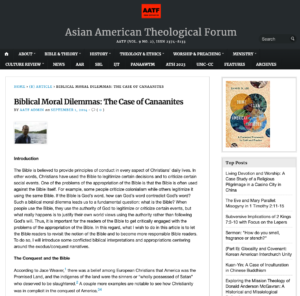
my works
온라인 소논문: Biblical Moral Dilemmas
When people use the Bible, they use the authority of God to legitimize or criticize certain events, but what really happens is to justify their own world views using the authority rather than following God’s will.

